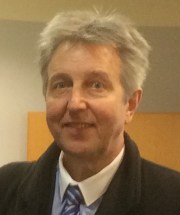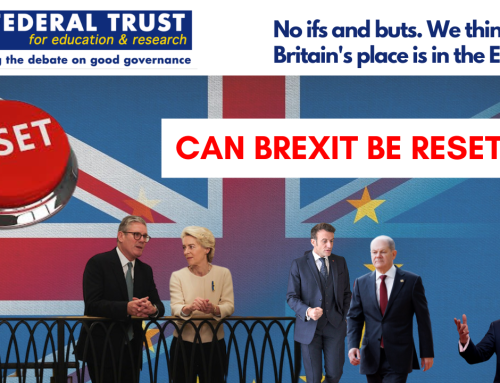
by Dr Alan Hick
Dr Hick is a Director of New Europeans (Europe) and a former senior official at the European Economic and Social Committee
2nd May 2020
This article has been reproduced with kind permission from New Europeans
On 9 May 1950, just five years after the end of the war in Europe, the French Foreign Minister, Robert Schuman, issued an official statement that would fundamentally change the future of Europe and pave the way for European Union.
The “Schuman Declaration” cogently stated that “Europe will not be made all at once, or according to a single plan. It will be built through concrete achievements which first create de facto solidarity.”
The “coming together” proposed was a pooling of Franco-German production of coal and steel (former war industries) under an independent and technocratic “common High Authority” within an organizational framework open for other European countries to join. This was seen as the “first concrete foundation” for mutual economic development and “a European federation indispensable to the preservation of peace.” It was the first stone in the construction of the future European Union.
The (West) German chancellor, Konrad Adenauer, immediately agreed, as did the governments of Italy, Belgium, Luxembourg and the Netherlands. Within one year, on 18 April 1951, the six founding members signed the Treaty of Paris, setting up the European Coal and Steel Community, a groundbreaking development that subsequently led the way to the same six signing the Treaties of Rome, on 25 March 1957, setting up the European Economic Community and the European Atomic Energy Community. The European Commission became the new high authority and in due course the European Community and then the European Union evolved and enlarged to include 28 European member states (up until Brexit).
Without doubt the “Schuman Declaration”, signed 70 years ago this week, was an immense historical event and Schuman is rightly seen as the “father” of the current EU structure.
However, whilst the “Schuman Declaration” was the start of a revolutionary breakthrough in the pacification of Europe and the construction of common governance in specific economic areas, it did not constitute a pooling of national sovereignties within a dedicated democratic and political federal structure, as dreamed of by the anti-fascist prisoners at Ventotene in 1941 and by the European Resistance Manifesto of 1944.
As Altiero Spinelli rightly recalled, the emergence of the “federal idea during the war” was one of forging a supranational European democracy with a “new humanity” based on the fraternity and solidarity of the European Resistance against Nazi-fascist tyranny.
The hopes of the federalists led initially, post-war, to the Hague Congress in May 1948, to the founding of the European Movement and to the setting-up of the Council of Europe in 1949. Sadly however, essentially due to British hostility, the Council of Europe was deprived of political teeth, remained mainly intergovernmental and was not the harbinger of a European Constitution.
The supranational political ideal, spawned by the anti-fascist and resistance years, ran out of steam and was replaced by Jean Monnet’s more “limited” neo-functional method with a supranational but technocratic “High Authority” initiated by the “Schuman Plan”.
Of course, the “Schuman Plan” and what followed germinated into a more political structure, but not one that convincingly plugs the democratic deficit within the current EU framework. The European Commission is still unelected and is still perceived as being “remote” and “unaccountable”.
The European Parliament still struggles to assert its democratic role. And the intergovernmental European Council and Council of Ministers still call the shots within the confines of “essential” national economic interests.
As we celebrate “Schuman Day” this 9 May 2020, let us hope that one day soon we can all unite behind the banner of a renewed commitment to a truly democratic, supranational and political European Union.
About the author:
Dr Alan Hick is a director of New Europeans (Europe). His PhD from the European University Institute was on “The European Movement and the campaign for a European Assembly 1947 to 1950.”







